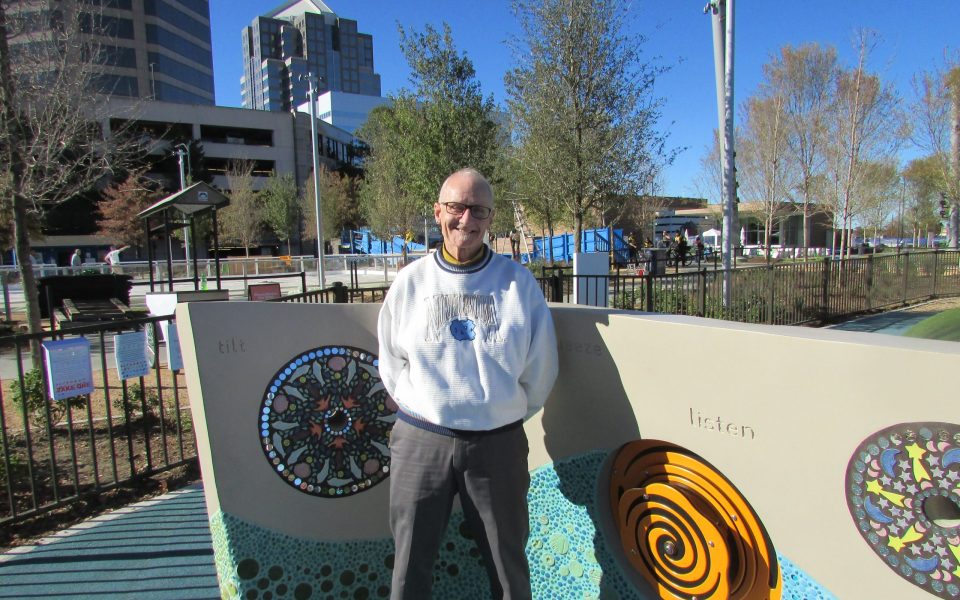When Wes Taylor received his HIV diagnosis on Nov. 10, 2015, he prepared for the worst.
“I didn’t know much about it, and I thought I was going to die,” Taylor said. “I learned quickly that wasn’t the case.”
About a month later he began taking two prescribed medications — Tivicay and Efavirenz.
“By February, I had an undetected viral load,” Taylor said. “Taking medication keeps me healthy, and it keeps my viral load so low I will not be in a position to infect anybody else. Hopefully, by my behavior I wouldn’t do that anyway. One, I want to be healthy. Two, by love and responsibility I don’t want to infect anyone else.”
What immediately helped Taylor after receiving his diagnosis was finding mentors at Higher Ground, a day center for HIV-positive individuals on Bessemer Avenue that is run by Triad Health Project.
“There I learned the importance of having mentors,” Taylor said. “The people there are gay, straight, black, white, transgender, men and women — people who love each other.
“We draw upon our own experience to provide support for people with HIV,” he continued. “We support each other based on experience. It works very well. I was eager to hear from other people who have HIV, seeing them live and be healthy. I met people at Higher Ground who had been diagnosed for less than a year, and I met a married couple that have been diagnosed for 33 years.”
Taylor’s gratitude for the assistance he received — he has a list of more than 500 people who have helped him since he was diagnosed — compels him to return the favor, and he decided to organize a network of mentors to reach people at the Regional Center for Infectious Disease.
“There are people who are not comfortable meeting me at Higher Ground because they don’t want to be seen around people who have an HIV diagnosis,” Taylor said. “And there are people who will come from another county or town to Higher Ground so people won’t see them in their own community.”
The stigma surrounding HIV is the single biggest barrier to people getting tested, Taylor, and when they receive a positive diagnosis, the stigma is also the biggest barrier to getting treatment.
In an interview at LeBauer Park in downtown Greensboro, Taylor talked about his efforts to repay the support he’s received and he said he found it providential that the interview was taking place exactly one year to the date of his diagnosis.
“The reason I’m willing to sit and talk with you is because I want to normalize the experience of being HIV positive,” Taylor said. “The thing about stigma is it hurts me because I’m not getting treatment and the public is at risk. It hurts us all.
“I think there are many people who assume they don’t know anyone who has HIV,” he continued. “We tend to be fearful of the unknown…. When they get to know me and my personality, and my values, some of the stigma and fear tends to evaporate.”
Taylor said it’s important to emphasize that not all people with HIV are gay.
“For those of us who are gay, which would include me, it’s an additional challenge to overcome. I feel like it’s my responsibility to talk especially about HIV, and when I feel led that the time is right to talk about sexual orientation.”
In hindsight, Taylor said his diagnosis has been a blessing.
“I was isolated,” he recalled. “I was an alcoholic. I don’t think I would have ever gotten sober without it. I met this 500 people I told you about and got reconnected spiritually. I have to see that as a gift.”
He took his last drink in early April.
The medical advances that have taken place since the virus was discovered in the early 1980s have made it possible for people with the diagnosis to live a relatively normal life if they maintain a disciplined regimen of medication. While a cure has yet to be discovered, the successful treatment of the condition might raise the risk that people will become less vigilant about prevention.
“People that I know that are aware of the disease consider it to be a sobering situation to deal with, not impossible,” Taylor said. “For most of the people I deal with, complacency is not an issue. I’ve been told that there are young people who are that way. Maybe it’s because they don’t have the experience of people dying or being sick.
“The message is that you can be healthy with HIV,” he added. “The other part of that message is that there are ways to not become infected with HIV.”
Taylor hopes the new mentor network at the Regional Center for Infectious Disease will be a lifeline for people who are trying to figure out how to navigate life with an HIV-positive diagnosis, just as he was 12 months ago.
“Mentors are one of the tools to battle stigma,” Taylor said. “I can feel much less stigmatized and less ashamed if I have you sitting in that chair to share our experience with this disease. The mentor thing is so powerful. It just gets back to that we are our brother’s and sister’s keeper.”
Join the First Amendment Society, a membership that goes directly to funding TCB‘s newsroom.
We believe that reporting can save the world.
The TCB First Amendment Society recognizes the vital role of a free, unfettered press with a bundling of local experiences designed to build community, and unique engagements with our newsroom that will help you understand, and shape, local journalism’s critical role in uplifting the people in our cities.
All revenue goes directly into the newsroom as reporters’ salaries and freelance commissions.





Leave a Reply